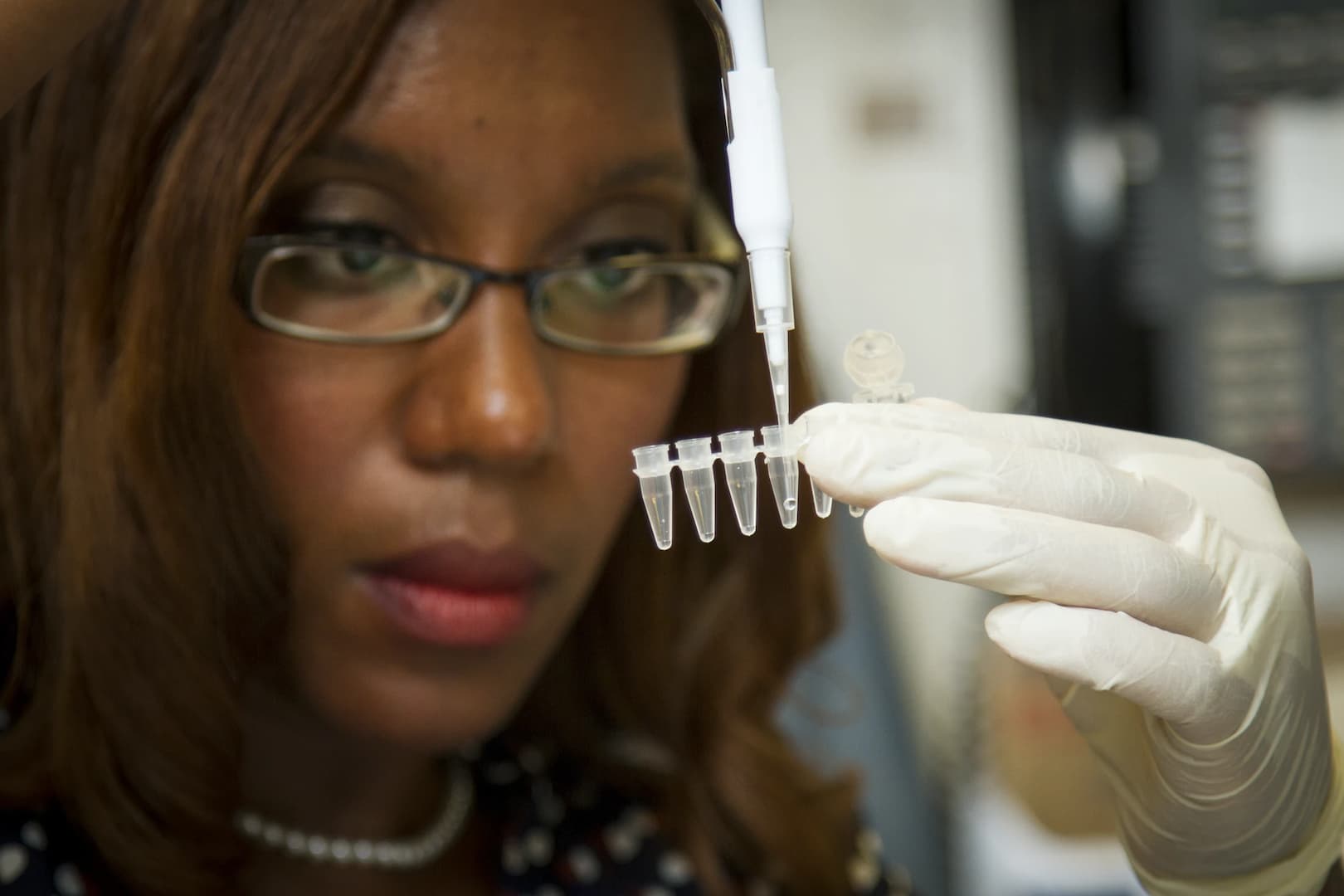
Ayurveda goes back as far as 1500 BCE and has established the significance of treating illness based on a person's unique Ayurvedic constitution. Each person has a unique Ayurvedic constitution formed at the time of conception. Called Prakriti, it's the most natural state of a person that determines how they respond to disease and treatment.
A person's Prakriti dictates the percentages of their doshas, or the three constitutional types of every human being known as Vata, Pitta and Kapha, which influence their physical, mental and emotional health. Vata refers to the energy of breath and movement, Pitta is the energy of metabolism and digestion, and Kapha is the energy for maintaining the structural integrity of the body.
Is There a Correlation Between a Person's Genes and Ayurveda Prakriti?
Some people have a more dominant Vata, others are more of Pitta, and there are those who have a more kapha side to them. Once a person has any imbalances in their health, they shouldn't aim to balance their doshas equally but restore them back to their natural Prakriti.
In the Ayurveda framework, two persons may manifest the same symptoms but not share the same health problem. Each of them will need an Ayurvedic treatment plan that is specific to their Prakriti, otherwise healing oneself would be impossible. Researchers in India conducted an in-depth study to find out if indeed there is a genetic basis for the practice of personalised medicine in Ayurveda.
In 2015, Govindaraj, P. et al., researchers at the Centre for Cellular and Molecular Biology, a life science research facility in India, analysed the Prakriti and DNA of 3,416 normal healthy male subjects between 20 to 30 years of age. Their goal was to determine whether or not Prakriti classification has a genetic basis and, ultimately, share their discovery with the world through their scientific report titled Genome-wide Analysis Correlates Ayurveda Prakriti.
What Did the Research Involve?
From the 3,416 healthy individuals, researchers selected 971 subjects who showed a predominant Prakriti and analysed their blood samples. After separating the subjects' DNA from their blood samples, the research team randomly selected 262 individuals for genotyping and DNA sequencing in order to identify the genetic variations in the Prakriti samples before classifying the individuals as Vata, Pitta and Kapha without reference to their ethnic groups and geographical locations.
Two hundred forty-five of the 262 samples analyzed passed the genotype call rate. To identify the missing genotypes, they performed genotype imputation, which is the process of predicting the missing genotypes based on a group of genes in a single-nucleotide polymorphism (SNP). In order to ascertain the accuracy of the imputation, they compared the genetic variation imputed to the genuine genotypes.
After ensuring the accuracy of the imputation, the researchers checked the ethnic origins of the Prakriti samples using their existing data of 297 Indian nationals with known ancestry, which consisted of the following:
- 150 Dravidians
- 80 Indo-European
- 35 Austro-Asiatic
- 27 Tibeto-Burman
- 5 Great Andamanese
The result? They found that there were 789,309 common SNPs between the Prakriti samples and Indian ancestral samples. Further analysis of the 413,171 SNPs, while excluding the rest due to strong linkage disequilibrium, revealed that most of the Prakriti samples belong to the Dravidian and Indo-European groups, while only three can be identified with the Tibeto-Burman and other lineages.
The study also showed the conspicuous observation of researchers regarding the big difference of 52 SNPs between the Ayurveda Prakritis, proving the distinct differences between individuals in the Pitta, Vata and Kapha groups.
Does One's Genes Have a Direct Link to Their Prakriti?

One can gather from the work of Govindaraj and his fellow researchers that a person's Ayurvedic constitution depends on their genes, not their ancestry. The samples used in their research clearly show that people from diverse ethnic groups in India can have the same Prakriti and exhibit the same phenotypic traits.
Further proving the validity of their study is the stronger presence of Phosphoglucomutase-1 (PGM1) gene, which is responsible for regulating glucose, in Pitta Prakriti compared to Vata and Kapha. It only goes to show that taking a person's genetic structure into account is a crucial step for ensuring accurate Prakriti classification, which is the essence of Ayurvedic medicine.
|
Do you have a natural health & wellness business? |









